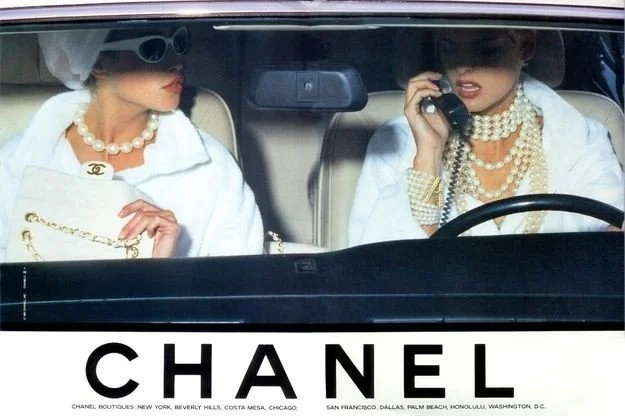Chanel v. What Goes Around Comes Around NYC
Plaintiff: Chanel, Inc.
Defendant: What Goes Around Comes Around NYC
Chanel, a leading luxury brand, filed claims against second hand luxury reseller, What Goes Around Comes Around NYC (WGACA). The origin of this case dates back to 2018, however a decision by the courts was not established until February 6th, 2024 and again on July 19th, 2024.
Chanel filed trademark infringement, false advertising/association, and unfair competition and trade practice claims against WGACA.
This case poses risk to the expanding second-hand luxury market, and brings light to false and unethical claims that multiple second-hand retailers facilitate.
Chanel’s Motive
Luxury brands hold a high standard of protection in terms of their products.
This standard can refer to the protection and security of the brand’s image, customers, finances, environmental responsibility, etc.
Chanel heavily prioritizes the high tier of luxury in which they produce; this includes their signature “CC” logo and the use of it, authenticity, advertising, and trademark concerns.
Whilst What Goes Around Comes Around NYC, much like other retailers, is legally qualified to resell luxury retail items, the claims the brand made created confusion for consumers.
WGACA NYC ultimately profited off of Chanel’s name through marketing with the trademark, and implementing slogans into their social media.
For instance, “The world’s largest collection of vintage Chanel”, and #WGACACHANEL.
The brand frequently utilized photographs of Chanel, or from Chanel’s campaigns in order to promote the second-hand Chanel that they sold.
Chanel and WGACA: Is there a history of a relationship, or an attempt at one?
There was never any formal relationship or affiliation between the two brands.
WGACA did in fact try to benefit off of Chanel’s name by requesting partnerships. By the content and the campaign titles that WGACA released regarding resale of Chanel, it gave customers the impression that there was an endorsement between the two.
In fact, regular Chanel customers brought this to the brand’s attention. This was the reason for the brand to claim false endorsement in court.
Authenticity Guarantee
Much like other luxury second-hand retailers in the fashion industry today, such as TheRealReal, Rebag, and Vestiaire Collective, WGACA ensures an 100% authenticity guarantee on all of their products.
Due to their focus on Chanel products at the time, many of these authenticity claims regarded “authentic Chanel handbags”.
Customers trust these sites to be honest about such strong claims, especially where luxury is involved.
In this specific case, WGACA sold 11 non-Chanel handbags, as proven through false production and authorization reports. There was also a handbag sold by the second-hand brand that featured a pirated serial number.
In court, Chanel’s attorneys claimed these counterfeit items were sold by WGACA, to prove False Association and Endorsement.
The First Decision
The span between the filing of claims by Chanel in 2018, and the decision by the court in 2024 could have been due to:
COVID19 delays
Complexity of claims
Pre-trial proceedings or preparation
Motions and rulings
Jury trial for this case began precisely on January 9th, 2024 and lasted until February 6th, 2024. The jury finally reached a unanimous decision favoring Chanel on all 4 counts they claimed:
Trademark Infringement
False Advertising
False Association
Deceptive & Unfair Trade Practices
Trademark infringement, false advertising, and false association all fall under the Lanham Act (Section 43(a) (15 U.S.C. § 1125(a))).
Whilst, Deceptive & Unfair Trade Practices fall under NY General Business Law.
These decisions by the court awarded Chanel with 4$ million dollars in statutory damages.
Equitable Remedies
Following the court’s decision on February 6th, 2024, they established a new court proceeding to take place on July 15th, 2024.
This hearing regarded equitable remedies, as requested by Chanel. This would relate to a permanent injunction that would prevent WGACA from using Chanel trademarks, and selling inauthentic Chanel products.
It also entailed disgorgement of WGACA’s Chanel-related profits.
In response to these claims by Chanel, WGACA claimed that Chanel had no proof of harm or loss of sales. This strengthened WGACA’s argument that this was not a viable claim.
Chanel is overall seeking 94$ million dollars in disgorgement and permanent injunction from WGACA. This case has yet to be settled.
What does this say about the fashion industry?
Luxury brands have a lot of money, and with money comes power.Yes, WGACA should have taken a cautious approach when dealing with the renowned and top-tier brand Chanel. The use of images, logos, and other trademarks from the brand was a risk that should not have been taken. The claims relating to trademark and false association/advertising are viable.
On the other hand, the equitable remedies claims, consisting of 94$ million dollars in damages, may be taking it too far.
Does Chanel v. What Goes Around Comes Around NYC represent a power imbalance between luxury giants and smaller fashion brands in the industry?
Or, are second-hand luxury retailers to blame?
